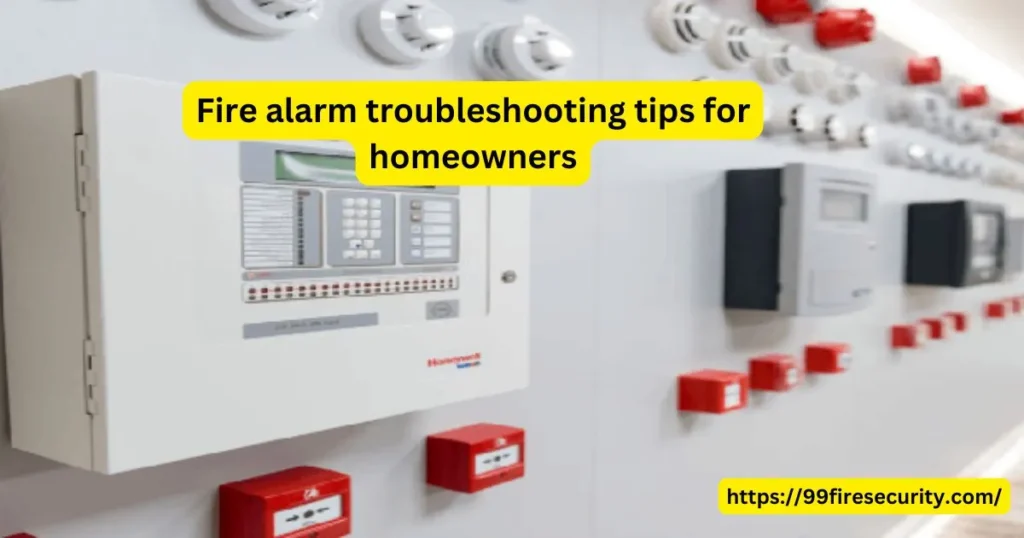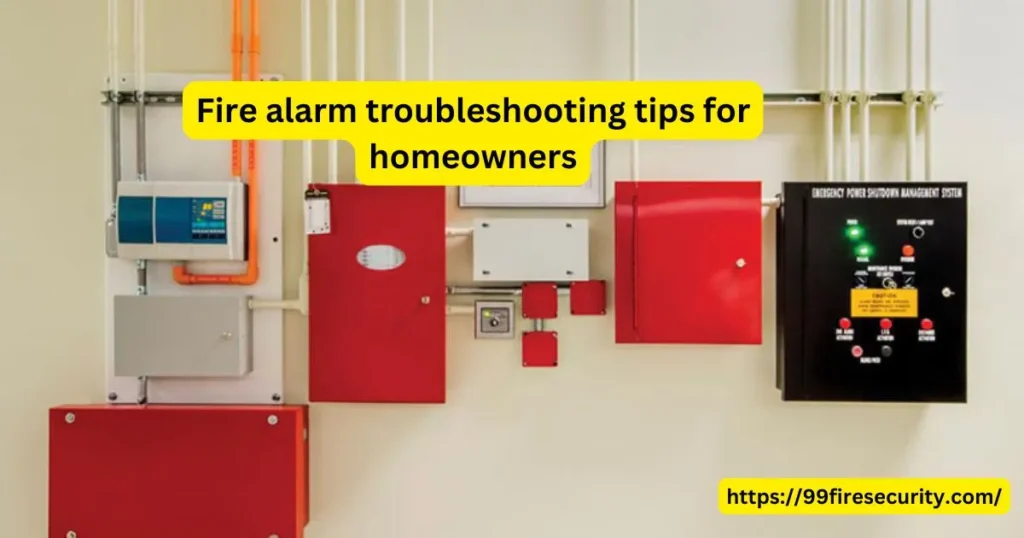Introduction:
A fire alarms is your best line of defense for stopping potentially devastating fires. Like any other device, it may malfunction over time. Don’t worry — most problems aren’t difficult to diagnose and fix with some know-how. In this guide, we’re going to walk you through common fire alarm problems, a step-by-step troubleshooting process, and some preventative tips to ensure your alarms remain in top form.
Clearly Comprehending the Fundamentals of Fire Alarms
How Fire Alarms Work
They are made to sense when smoke or heat is present, and make a loud noise to warn you that trouble may be brewing. They usually depend on sensors that detect alterations in atmospheric composition, heat, or range of motion of the flakes. Understanding how they work can aid in successful troubleshooting.
Common Types of Fire Alarms
- Ionization Smoke Alarms: Best for fast-flaming fires, these alarms contain a small amount of a radioactive source that ionizes air, which will trigger the alarm when smoke ruptures that cycle.
- Photoelectric Smoke Alarms: Best for detecting slow, smoldering fires, these alarms use a light beam that, when disturbed by smoke particles, triggers the alarm.
- Dual Sensor Smoke Alarms: These smoke alarms utilize both ionization and photoelectric technology to provide a more complete fire detection solution.
Regular Maintenance Matters
An unused alarm may fail when needed the most. Keeping your alarms reliable means regular cleaning, battery replacement, and testing.

Common Fire Alarms Issues
False Alarms
False alarms are no fun, but they’re typically the result of easily avoidable issues.
Causes of False Alarms:
- Steam or smoke from cooking.
- Dust or bugs inside the alarm.
It should not be placed near an air vent or window.
- How to Prevent False Alarms:
- Do not put alarms in the kitchen and bathroom.
- Clean the sensors regularly.
- Always install following the manufacturer’s instructions.
Low Battery Alerts
Chirping sounds persistently usually means low battery. Replacing the batteries otherwise can fix the problem.
Chirping or Beeping Sounds
Beeping sounds could also mean that sensors are malfunctioning or unit has reached its end of life. Check the manufacturer’s manual for how to diagnose specific beep codes.
Non-Functional Fire Alarms
Alarms that aren’t working at all may have dead batteries or wiring that is malfunctioning, or a defective unit. Diagnose these parts, one by one.
Make Sure You Have Obtained All Relevant Data
- Batteries: Check and Change
- Detach the alarm from its mounting bracket.
- Put in fresh batteries to the according to old ones.
- Reassemble the alarm and test it to make sure it’s functioning.

How to: Clean the Fire Alarms Sensors
Dirt and debris can disrupt the alarm’s sensors. Use a vacuum cleaner and use a brush to clean the outer part and gently remove the dust from the internal parts.
Resetting the Fire Alarms
In some cases, simple reset of the device may fix small bugs. Most alarms have a reset button that can be pressed and held for a few seconds to restart the system.
Testing the Fire Alarm
Press the test button of your smoke alarm once a month to keep it functioning. The alarm is supposed to be loud, shrill sound. If not, troubleshoot or replace the unit.
When to Call a Professional
If your Alarm still doesn’t work after you try to troubleshoot it, you need to call a professional. They’ll be able to check the wiring or recommend a replacement if your system is no longer usable.
Important Steps to Take to Ensure Fire Alarms Functions
- Regular Maintenance Checklist
- Once a year, replace batteries at least.
- Clean the sensors monthly.
- Regularly test alarm systems to confirm they function.
Proper Installation Tips
Install Alarms on each level of the home, including in sleeping quarters and outside sleeping areas. It’s best not to put them by the vents, window or ceiling fan.
Swimming Away From Fire Alarms
Make sure that nothing obstructs the alarm’s sensors. If the above 4 points are met, decorate rooms only with basic furniture and avoid all heavy dust.
Fire Prevention in the Home
Placement of Fire Alarms
Now to make sure the alarm is in the right place. Do not put them close to the kitchen or bathroom as that leads to many false alarms.
How to Develop a Home Fire Safety Plan
Fire alarms are only one component of your fire safety plan. Create an evacuation plan and practice fire drills, respect designated safe meeting areas.
Family Fire Alarms Training
Show everyone in your household how to test and maintain fire alarms. Must explain if they will know what to do when the fire alarm goes off

Frequently Asked Questions
How often should you test a fire alarms?
Fire alarms should be tested monthly to ensure they are in proper working order.
What to do if your fire alarms goes off unexpectedly?
Look for flames or smoke. If there’s no immediate threat, look for possible causes, such as smoke from cooking or obstructions in the sensors.
How long do smoke detector alarms last?
Fire alarms typically have 8-10 years lifespan. Replace these when they have expired.
Can I install fire alarms myself, or do I have to have it professionally installed?
Basic smoke alarms can be installed by most homeowners, but hardwired systems and complex installations are best left to a pro.
What is the difference between a smoke alarm and a carbon monoxide detector?
Smoke alarms sense smoke associated with fire, and carbon monoxide detectors sense harmful CO gas, which has no smell and can kill.


